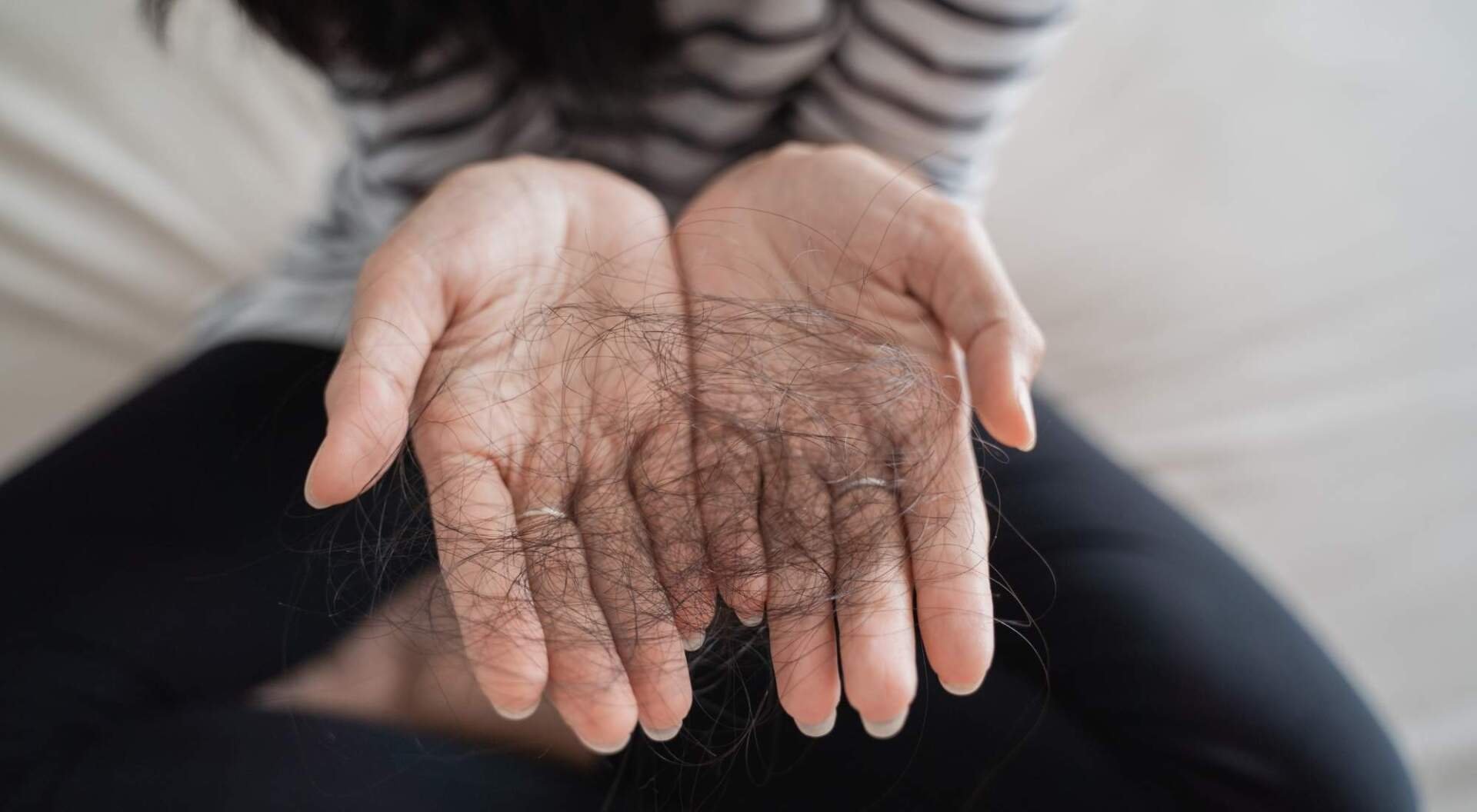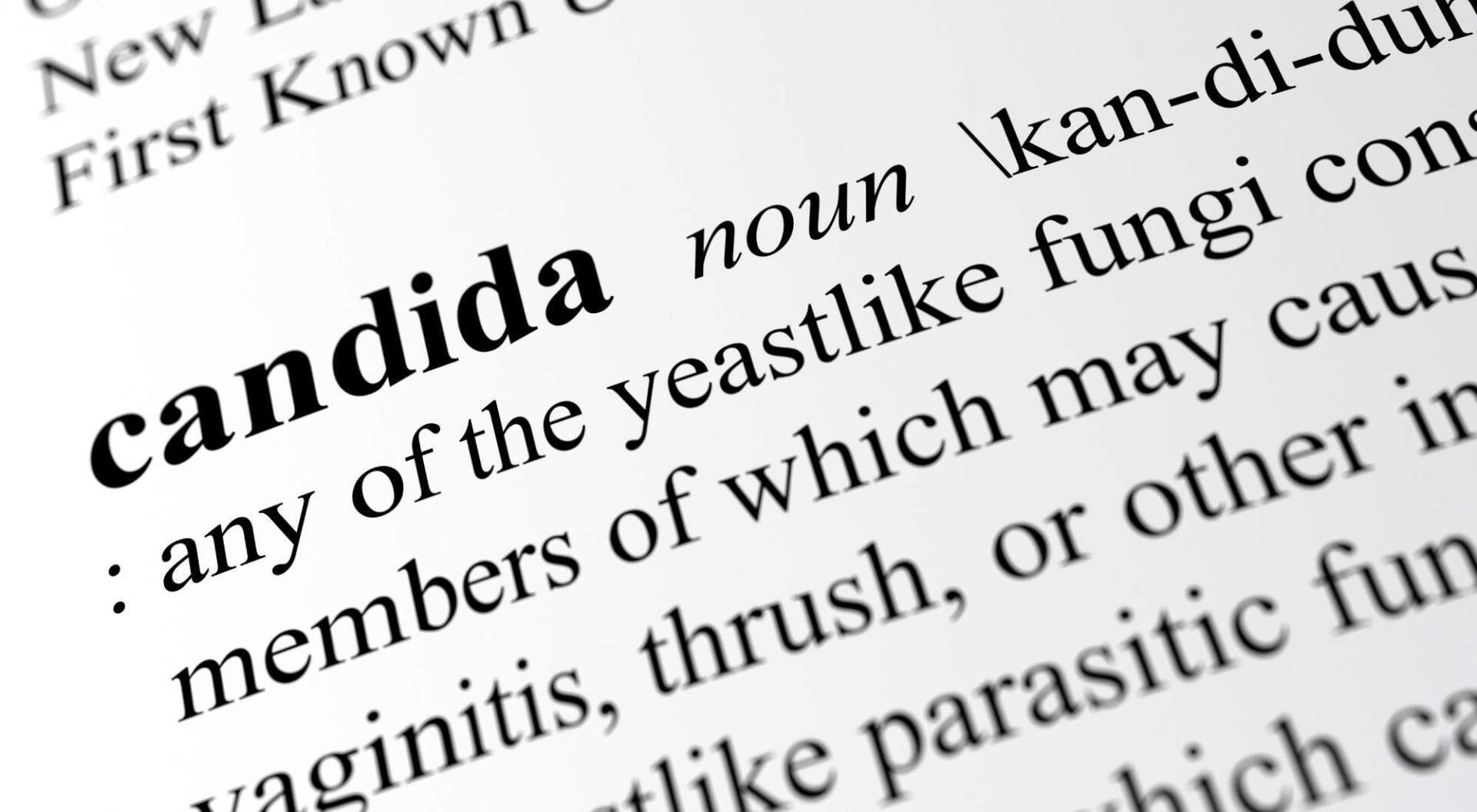Can Candida Cause Hair Loss? The Relationship Between the Two and What You Can Do to Combat Your Hair Loss
"The content below is not intended to be a substitute for professional medical advice, diagnosis, or treatment. Always seek the advice of your physician or other qualified health provider with any questions you may have regarding a medical condition."
Many women have experienced the uncomfortable symptoms of a Candida infection:
- Itching
- Burning
- Fatigue
- Joint pain
But hair loss is another side effect that is not only unpleasant — it can also be embarrassing.
Understanding Candida and the other conditions that contribute to hair loss is the first step to knowing how to prevent it and find relief.
In this article, you’ll learn about:
- Candida overgrowth symptoms, hair loss particularly
- Things that contribute to hair loss with Candida
- Steps to take to reduce symptoms
Table of Contents
Can a Fungal Infection Cause Your Hair to Fall Out?
Yes. A fungal infection can cause your hair to fall out.
Three types of common causes of hair infection and hair loss include:
- Dermatophytes (Ringworm is a common dermatophyte.)
- Malassezia infections; and
- Piedra
Candidiasis is a fungal infection caused by the yeast called Candida. Even though Candida can lead to a fungal infection, it is not known to
directly
cause hair loss.
However, an overgrowth of candida, coupled with other issues, may be an indirect cause of hair loss.
Can Candida Cause Hair Loss?
Candida, as troublesome as it is, does not directly cause hair loss.
However, Candida and its effects and/or treatments can lead to hair loss indirectly when coupled with other health issues.
These may include:
- Hypothyroidism
- Anxiety
- Depression
- Low estrogen
- Leaky gut syndrome; and
- Psoriasis
Candida and Hair Loss: 5 Reasons Why They Might Be Related
Hair loss with Candida can be embarrassing and can weaken your self-esteem.
The first step to combating the uncomfortable and unpleasant effects of hair loss is to understand some of the
lesser-known factors that may contribute to the condition.
#1: Hormonal Changes
Women understand hormonal changes …
- Menstrual cycles
- Pregnancy; and
- Menopause
… all cause hormonal imbalances.
Candida can also upset women’s hormones, particularly estrogen.
A condition known as estrogen dominance can not only affect your mood and menstrual cycle, but it can also contribute to fatigue, depression, and hair loss.
Candida essentially “eats” progesterone, leading to an excess of estrogen. In addition, the waste products of candida can imitate estrogen, making the estrogen dominance even worse.
If you’re experiencing the symptoms of hormonal imbalance, HealthierU is poised to help you tackle that imbalance naturally and through Nutrition Response Testing.
A Nutrition Response Testing assessment determines the
cause of your hormonal imbalance This provides the critical information needed to
develop a plan to get your body back to a balanced state
#2: Thyroid
Hormone imbalances can also cause all sorts of issues with your thyroid function.
Inflammation of the thyroid can be an effect of toxins released through the gut due to a Candida overgrowth. Hair loss can be an unwelcome symptom.
Hypothyroidism, also known as Hashimoto’s thyroiditis, is a condition caused by an underactive thyroid. This causes many bodily functions to slow down, including blood flow.
This inadequate blood flow to the scalp can lead to hair loss.
Interestingly, hypothyroidism is common in women who also experience estrogen dominance, resulting in a double whammy.
In short, Candida can wreak havoc on your immune system leading to imbalances in both estrogen and thyroid hormones.
#3: Leaky Gut
Leaky gut — it’s as unpleasant as it sounds causing uncomfortable symptoms like:
- Fatigue
- Bloating
- Digestive issues; and
- Skin problems
With leaky gut, also known as increased intestinal permeability, bacteria and toxins “leak” through the wall of the intestine.
Candida contributes to leaky gut syndrome when Candida filaments invade the intestinal cells, causing inflammation and allowing toxins to leak into the body.
The main issue with leaky gut syndrome is that the body is not able to absorb many vital nutrients. When the body becomes deprived of necessary vitamins and minerals, hair loss is often a side effect.
#4: Stress
\We all experience stress at some level, but excess or prolonged stress can upset many of our body systems.
Stress can ravage both the:
- Immune system; and
- Digestive system
How can stress have such devastating effects, especially when coupled with Candida overgrowth?
- Stress affects the immune system by causing an imbalance between good and bad bacteria, allowing Candida to continue to grow.
- Stress increases the susceptibility for Candida growth leading to leaky gut.
- Norepinephrine and epinephrine are hormones released due to stress which cause pathogens like Candida to grow.
- Stress can cause a rise in cortisol levels which in turn weakens the immune system and raises blood sugar, giving the Candida yeast the food it needs to continue to grow.
So what does all this have to do with candida and hair loss?
Stress puts a strain on every body system. This strain pulls nutrients to major areas of the body. This causes the scalp to become deficient in many nutrients, leading to hair ctions often comes to many women through the use of antifungal drugs — both over-the-counter and prescription medications.
Diflucan, or fluconazole, is the most common medication prescribed for Candida infections.
As with most all medications, this drug has common side effects that come with its use.
Some of the side effects include:
- Headache
- Dizziness
- Nausea
- Vomiting; and
- Hair loss
In a study of patients receiving diflucan therapy, 12.5% of them experienced hair loss after 3 months. In the end, the study concludes, “Alopecia (hair loss) appears to be a common adverse event associated with higher-dose (400 mg/d) fluconazole given for 2 months or longer.”
The promising news is that hair growth can return when the medication is discontinued.
4 Things You Can Do to Reduce the Symptoms of Yeast Overgrowth and Hair Loss
We’ve answered the question, “Does Candida cause hair loss?”
Your next question is surely, “What can I do about it?”
Below we’ll discuss a four-part strategy to deal with Candida and hair loss.
HealthierU can help you implement this strategy with:
- Diet and nutritional guidance
- Herbal and supplement instruction; and
- Nutritional Response Testing
Dr. Sergi is there to walk alongside you each step of the way with education, encouragement, and evaluation.
#1: Follow an Anti-Candida Diet
Candida thrives on sugar and refined carbohydrates, so limiting these things from your diet is essential.
Foods to avoid on an anti-Candida diet include:
- Added sugars
- Juices
- Candy
- Desserts
- Sodas
- Simple and refined carbohydrates
- Pasta
- Bread
- Rice
- Crackers
- Legumes
- Some nuts, seeds, and grains
- Starchy vegetables
- Beets
- Corn
- Squash
- Potatoes
- Processed foods
- High sugar fruits
- Caffeine
- Gluten
- Alcohol
Foods to eat on an anti-Candida diet include:
- Protein
- Fish
- Beef
- Chicken
- Turkey
- Protein powders
- Ground vegetables
- Fats from seeds
- Sesame
- Pumpkin
- Sunflower
- Fats from nuts
- Pecans
- Almonds
In addition to these foods, remember to drink lots of water.
#2: Detox
Before starting an anti-Candida diet, a Candida detox will give your body a chance to recover and will set up both your digestive and immune systems for a re-start.
To keep your digestive system from overworking, sticking to salads and vegetables during your detox is a good idea.
In addition, include the following foods, vitamins, and herbs in your detox:
- Fruits low in sugar
- Non-starchy vegetables
- Eggs
- Vegetable broth
- Healthy oils
- Molybdenum
- Milk thistle
- Bentonite clay
- Vitamin C
- Swedish bitters
A Candida detox will flush out harmful toxins and will help to kill off the Candida as you get ready to begin a Candida diet.
#3: Herbs and Supplements
Herbs and supplements can be beneficial in two ways:
- Killing Candida yeast cells; and
- Supporting good bacteria in the gut
Consider the following supplements and herbs to combat Candida and hair loss:
- Pau D’Arco
- Caprylic acid
- Probiotics
- Grape Seed extract
- Echinacea
- Ginger
- Ginseng
- Clove oil
- Oregano oil
- Myrrh oil
- Lavender oil
- Origanum oil
- Boric acid
- Activated charcoal
- S. boulardii
#4: De-Stress
Many of us experience busy, fast-paced lives with over-full schedules.
De-stressing is hard — but it can be done. And it will reap benefits far beyond the decrease in Candida and its side effects.
De-stressing helps you:
- Sleep better
- Stay healthy
- Improve digestion
- Heal quickly
- Have less tension
- With mood swings
- Control your body weight
- Have healthy relationships
- Lower your blood pressure and heart rate
There are all kinds of ways to de-stress. Below are some activities to help you relax and reduce stress. Try them out to see which ones you enjoy and give you the most benefit.
- Breathing exercises
- Yoga
- Meditation
- Progressive muscle relaxation
- Acupuncture
- Therapy or counseling
- Take a walk
- Hobbies
- Massage
- Essential oils
- Relaxing baths
How Long Does it Take for Hair to Regrow?
If you do experience hair loss with Candida, be encouraged — hair regrowth is possible.
The time it takes for your hair to grow back will be different for each person. But generally, you can expect your hair to regrow in three to six months.
To encourage hair growth, try the following:
- Wash your hair with an antifungal shampoo.
- Apply antifungal agents to the scalp.
- Wash your hands often.
- Avoid tight hairstyles.
- Avoid wearing hats.
- Limit the use of hair products.
- Eat a healthy, balanced diet.
- Massage peppermint oil on the scalp.
Are You Looking for a Natural Way to Combat Hair Loss? Nutrition Response Testing at HealthierU Can Help
If you’ve struggled with Candida and are now dealing with hair loss, Dr. Sergi at HealthierU can help.
With Nutrition Response Testing, Dr. Sergi can help pinpoint symptoms and causes and then formulate a plan to address them naturally without the use of traditional medications.
Nutrition Response Testing is a technique that examines your body to determine the underlying causes of your symptoms to alleviate them.
After the Nutritional Response Testing assessment, Dr. Sergi creates a customized plan that includes:
- Lifestyle guidance
- Nutritional support; and
- Supplementation
The goal is to permanently correct your health issues, including Candida and hair loss.
Contact Dr. Sergi today for your complimentary consultation.






